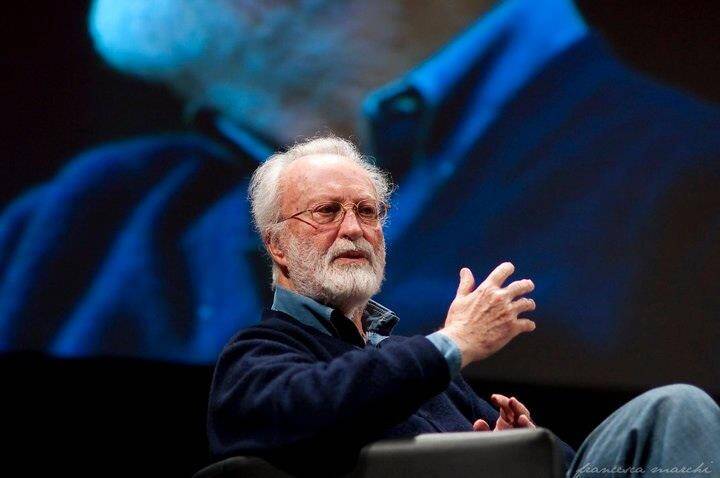An Italian journalist who has had several telephone conversations and a face-to-face meeting with Pope Francis claimed that in their latest conversation Pope Francis told him that following the Synod of Bishops on the family, "all the divorced who ask" will be admitted to Communion.
Eugenio Scalfari, a co-founder and former editor of La Repubblica, an Italian daily, said Pope Francis phoned him the evening of Oct. 28 to discuss an article Scalfari had written about the synod.
"You can imagine my happiness as a non-believer privileged by the friendship of Francis," Scalfari wrote Nov. 1 in La Repubblica.
The journalist has explained on more than one occasion that he does not take notes or record his conversations with the pope; he re-creates them afterward from memory, including the material he puts in quotation marks.
Jesuit Father Federico Lombardi, Vatican spokesman, has cautioned reporters against taking the so-called quotes as words directly from the pope. He told the National Catholic Register on Nov. 2: "As has already occurred in the past, Scalfari refers in quotes what the Pope supposedly told him, but many times it does not correspond to reality, since he does not record nor transcribe the exact words of the Pope, as he himself has said many times. So it is clear that what is being reported by him in the latest article about the divorced and remarried is in no way reliable and cannot be considered as the Pope's thinking."
Father Lombardi said he would not be issuing a statement about the matter as those who have “followed the preceding events and work in Italy know the way Scalfari writes and knows these things well.”
Scalfari said Pope Francis spoke about the diversity of opinions expressed by bishops at the Oct. 4-25 synod, particularly on the feasibility of some divorced and civilly remarried Catholics receiving absolution and being allowed to receive Communion even if their first, sacramental marriage has not been annulled.
"In principle, it was accepted by the synod," the pope said, according to Scalfari. "This is the basic result: the evaluations of the facts are entrusted to confessors, but at the end of the processes—whether quick or slow—all the divorced who ask for it will be admitted."
The synod's final report to Pope Francis was not that clear and, in fact, did not specifically mention Communion for the divorced and civilly remarried. In current church practice, in almost all cases, such people are not to receive Communion because the church recognizes only their sacramental marriage as valid.
The synod did, however, emphasize how "pastoral accompaniment" involves discerning, on a case-by-case basis, the moral culpability of people not fully living up to the Catholic ideal of marriage and the diversity of consequences based on their level of responsibility for the breakup of a marriage. Several bishops said that left the possibility open for an eventual return to the sacraments.
Writing about his latest conversation, Scalfari said Pope Francis described families as a changing institution -- with positive and negative results -- but one that will never disappear because human beings are social beings and families are "the supporting beam for sociability."
"The church must work so that the positive elements will prevail over the negative," Scalfari cited the pope as saying.








